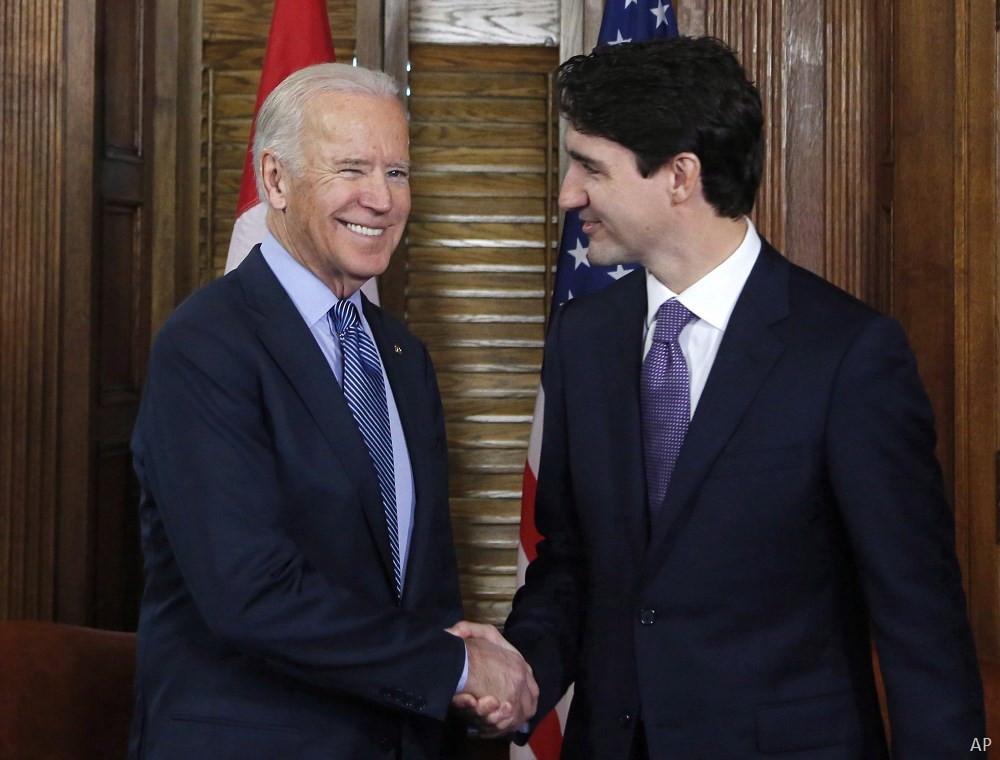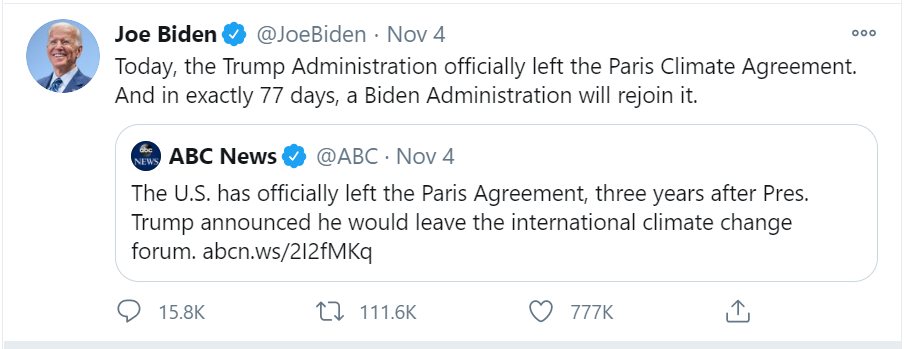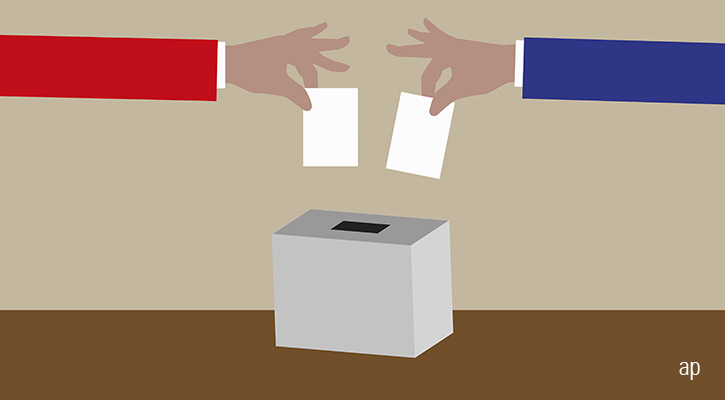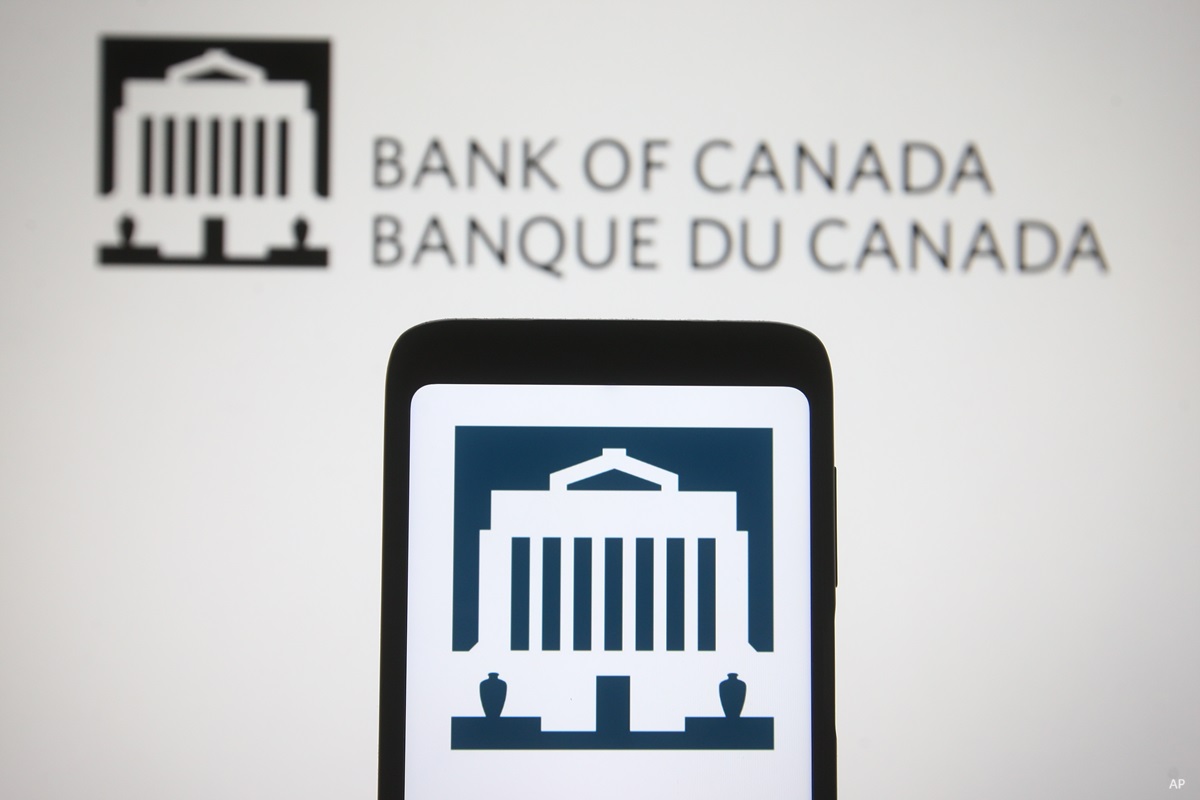
After last week’s win for Biden, it looks likely that Republicans will hold on to the Senate, denying Democrats the “clean sweep” to push through their ambitious programme of change. The key question for investors is what changes a Biden presidency combined with a Republican Senate scenario could bring.
As Morningstar’s Dave Sekera points out, Biden's platform proposed major new spending programmes, including healthcare, clean/renewable energy, infrastructure, and education, among others, but his ability to institute most of these major policy changes is going to be very limited without Democratic Senate control.
“We think the experience of 2010-16 is instructive (when Barack Obama was President, but the Republicans held the House, and later the Senate as well): Congressional Republicans are likely to stay disciplined in denying Biden significant legislative victories.
A handful of Democratic policy priorities can be accomplished solely through executive action, and we expect a potential Biden administration to pursue these regulatory avenues. With that said, Biden's executive authority might end up limited compared with Obama's, thanks to potential new Supreme Court rulings around the power of the administrative state,” Sekera points out.
On Monday, the global equity markets rallied, in part due to the end of uncertainty that saw the election result delayed for days. But more so because of the possibility of a coronavirus vaccine. The start of the week saw the announcement that Pfizer and partner BioNTech reported favourable phase 3 data on COVID-19 vaccine BNT162b2, with an efficacy rate of over 90% and no major safety issues observed at an interim analysis.
“A pop is normal in the very short term (a day or two) following a successful win. This is more so in cases where the election result was preceded by volatility and uncertainty because markets want certainty,” points out Jonathan Lemco, Vanguard Principal and Senior Investment Analyst. To him, the possibility of a vaccine was the more important development in the long run than the outcome of the U.S. presidential election. “If this vaccine is real, and we think that it could be, then this is a more important development than the election results”, he said.
He added that for both retail and institutional investors, it is important to remember that elections (and their outcomes) are one of over many possible variables, and after a day or two, elections turn into noise. Canadian investors should look for cues and views that will persist beyond the inauguration day.
We Know Joe
“Joe Biden is familiar to Canadians,” Lemco said. Biden has spent close to 40 years as a bureaucrat and in that time, he has come to know Canada well.
“His first wife’s family was Canadian, so he has familial knowledge of Canada. And vice-president Kamala Harris studied at Westmount High School in Montreal, so she has [some] knowledge of Quebec. All of this points to his understanding of Canada,” he adds.
However, one key aspect of the change in power in Washington, according to Lemco is the fact that under Biden, many of the erstwhile vacant bureaucratic positions are likely to be filled. “U.S. Bureaucrat seats in the State, Homeland and Treasury departments, key departments for Canada, had been left vacant in the Trump administration, and are likely to be filled this time around. This is very important because this means that Canadian diplomats will have counterparts to talk to. This is vital for conversations between the countries going ahead,” he pointed out.
These conversations are likely to be around trade and tariffs, climate change and energy.
Tariffs and Trade
Back in 2018, the U.S., Canada and Mexico renegotiated the North American Free Trade Agreement (NAFTA) and called the new deal the USMCA. Outside of the deal, though, Trump threatened, and frequently followed through with, tariffs.
Earlier this year, a month after the USMCA went into effect, Trump announced that he would re-impose a 10% tariff on Canadian aluminum. In response, Canadian Prime Minister Justin Trudeau tweeted that Canada would impose countermeasures that would include dollar-for-dollar retaliatory tariffs.
These events could well be history.
“The USMCA is in place, and that is not likely to change. Tariffs are less likely under Biden. Biden is likely to seek allies in international relations and won’t seek to “annoy” Canada,” Lemco said, pointing out that Biden has been mildly supportive of free trade.
“There could be friction on some issues, but by and large, I see trade as being positively impacted,” he said. And many believe that one key area of friction could be the Keystone XL pipeline.
Pipelines Go Poof?
In a nutshell, Joe Biden opposes the pipeline, while Justin Trudeau wants it.
As Morningstar equity analyst Joe Gemino pointed out, the fate of Canadian pipelines hinged on the U.S. Presidential election. “Energy infrastructure projects have been under fire lately, highlighted by project cancellations, legal challenges, permit denials, and political opposition, with TC Energy's Keystone XL and Enbridge's Line 3 replacement being among the most controversial,” he said.
With the election of Biden, it's almost assured that the Keystone XL pipeline project's presidential permit will be revoked, shelving the project indefinitely. “The Keystone XL also faces opposition from federal lawsuits that question the validity of its permits and challenges to obtaining water crossing permits after Nationwide Permit 12 was ruled invalid for new pipeline projects,” Gemino said.
With the Keystone XL pipeline now almost certainly off the table, there could be some friction between the two countries around it. “It is a very sensitive issue, and it is the one space in which Canada is seen as being more conservative than the U.S.,” Lemco said.
Energy, the Environment and Climate Change
Almost everyone we spoke to agrees that the one winner alongside Biden is the environment. Biden has promised to re-join the Paris Climate Agreement, tweeting on November 4 “Today, the Trump Administration officially left the Paris Climate Agreement. And in exactly 77 days, a Biden Administration will re-join it.”

“There are agreements in the Biden administration that Climate change is man-made, and the new government is likely to take lead from scientists on the issue. We see common ground with Canada there. More importantly, with the bureaucratic seats and positions being filled, Canada will have someone to talk to on climate change,” Lemco said.
Additionally, Biden announced that there will be no more fracking on public land, and less emphasis on coal in the U.S., with the sector getting fewer subsidies. There also will be a greater emphasis on renewable energy.
All of this is seen as being positive.
Not a Panacea
“Overall, the relationship between U.S. and Canada is likely to be more harmonious, and there will likely be a build-up of trust,” Lemco says. However, he warns that this election result is not a magic solution.
“It is important to remember that this is not a panacea for Canada. Things will certainly get better, but it is important to remember that the U.S. president is not all-powerful. The onus will be on Canadians in Washington, who will have to continue to lobby for Canada’s interest because there will be other countries doing the same for theirs. Frankly, Canada will not be the primary focus of the administration, the focus will continue to be China, Iran and countries that are seen as being threats. Canada is not a threat, and so is often taken for granted,” he said.
Investors should stay the course and see how all of this shakes out. “It is important to have a well-diversified portfolio with a long-term focus. Don’t be reactive, have faith and be emotionally detached in your investments,” Lemco says.
Success in the Low-Carbon Economy
Learn about the companies best positioned to survive and thrive




















